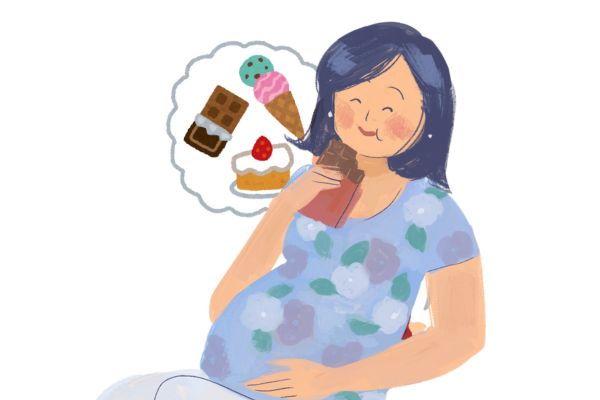Pregnancy is a whirlwind of emotions, physical changes, and of course cravings. From the classic ice cream and pickles combo to a sudden yearning for spicy salsa or tangy citrus, these intense desires for specific foods are a hallmark experience for many expecting mothers. But the question remains: Do these cravings impact the baby?
The science behind pregnancy cravings is still a bit fuzzy. While there’s no definitive answer on whether they directly influence your baby’s development, experts have proposed several interesting theories:
- Nutrient Deficiency: One popular theory suggests cravings might be your body’s way of signaling a nutritional need. For instance, a chocolate craving could indicate a desire for magnesium, while a yearning for red meat might indicate a lack of iron. However, there’s not always a clear link between the craved food and the suspected deficiency.
- Shifting Taste Buds: Pregnancy hormones, particularly estrogen and progesterone, can wreak havoc on your sense of taste and smell. This heightened sensitivity can make certain foods smell or taste more appealing, leading to intense cravings.
- Psychological Factors: Cravings could also be influenced by emotional factors and cultural conditioning. The comfort associated with a particular food, or even cravings experienced by other pregnant women you know, might play a role.
So, How Do Cravings Affect the Baby?
The good news is that indulging in occasional cravings, within reason, is unlikely to harm your baby. The nutrients your baby receives come primarily from the overall quality of your diet, not just the specific foods you crave. However, there are some important considerations:
- Moderation is Key: While indulging in a slice of chocolate cake or a scoop of ice cream won’t hurt, constantly reaching for sugary or high-fat options can lead to weight gain and potentially contribute to gestational diabetes. Remember, a balanced diet rich in fruits, vegetables, whole grains, and lean proteins is crucial for your and your baby’s health.
- Beware of Unhealthy Cravings: Cravings for non-food items like dirt, clay, or chalk (a condition called pica) can indicate an underlying nutritional deficiency and require medical attention. Discuss any unusual cravings with your doctor.
- Listen to Your Body, But Prioritize Nutrition: Cravings can be a helpful cue to listen to your body’s needs but prioritize healthy options whenever possible. If you crave something sweet, try a piece of fruit with a dollop of yogurt instead of a sugary candy bar. For salty cravings, opt for roasted nuts or baked kale chips instead of processed snacks.
Importance of a Balanced Diet
While cravings may grab the spotlight, a balanced and nutritious diet is the cornerstone of a healthy pregnancy. Here are some vital dietary tips:
- Focus on Whole Foods: Aim for a diet rich in whole grains, fruits, vegetables, and lean protein sources like fish, poultry, and legumes. These foods provide essential vitamins, minerals, and fiber that support your baby’s development.
- Don’t Forget Healthy Fats: Fats from avocados, nuts, and olive oil are crucial for fetal brain development.
- Stay Hydrated: Drinking plenty of water throughout the day is vital for you and your baby.
- Prenatal Vitamins: Prenatal vitamins help fill any nutritional gaps in your diet and ensure your baby receives the essential nutrients they need to thrive.
Remember:
- Don’t stress too much about occasional cravings.
- Embrace the pregnancy journey, listen to your body’s cues, and prioritize a balanced diet for the overall health of both you and your developing baby.
- If you have concerns about your cravings or diet, consult your doctor or a registered dietitian for personalized guidance.





